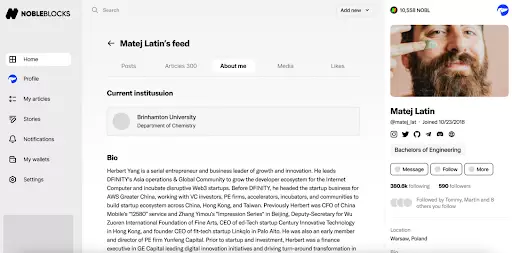In the world of scientific research, traditional gatekeepers such as scientific journals have long benefited from the hard work and findings of the scientific community. Unfortunately, this has led to an unequal distribution of resources and the centralization of scientific knowledge. Scientific journals, while crucial for spreading information, are facing numerous challenges such as article suitability, high fees, and complex review processes. Despite efforts to widen access through digital evolution, inefficiencies and access hurdles continue to persist.
Just like how disruptive transformations have occurred in music, media, and finance, the field of scientific publishing also appears to be ripe for an overhaul. The current system, much like the banking industry, is built on tradition and trust, resulting in frustrations among scientists who feel dissatisfied with the status quo. While social media has made it easier to share interesting facts and snippets of information, deeper knowledge and findings are often hidden behind paywalls. The most impactful findings are typically published in prestigious journals that charge exorbitant fees to researchers and their institutions for publication.
Blockchain technology emerges as a transformative force against the inefficiencies and inequalities of scientific publishing and communication. By introducing a decentralized science (DeSci) model, blockchain can streamline the publication process, improve the clarity of peer reviews, and promote fairness. The lack of diversity in the locations where scientific recognition and publication originate can lead to the overlooking of radical ideas that challenge established norms. Scientists often face rejection during the peer review process, hindering their ability to share groundbreaking research.
NobleBlocks is a platform that aims to address the biases and inefficiencies present in scientific publishing. By utilizing a blockchain-based DeSci model, NobleBlocks establishes a public infrastructure for creating, reviewing, storing, and distributing scientific knowledge in a fair and equitable manner. The platform facilitates global participation across all disciplines and academic spectrums, enhancing the peer-to-peer review system in scientific publishing.
NobleBlocks introduces a token-based economy designed to empower researchers and academics, providing them with the ability to trade and exchange research hours directly. By leveraging the platform’s native token, NOBL, scientists can bypass traditional financial barriers and expensive publishing fees. This token-based system incentivizes quality peer reviews, streamlines interactions between authors, reviewers, and editors, and ensures a seamless transition from manuscript submission to publication.
The adoption of blockchain technology in scientific publishing signifies a shift towards a more efficient, transparent, and accessible landscape. By reducing financial barriers, incentivizing quality contributions, and streamlining the publication process, blockchain has the potential to revolutionize how scientific knowledge is shared and disseminated. As platforms like NobleBlocks continue to innovate and integrate cutting-edge technologies such as artificial intelligence, the future of scientific publishing looks promising, offering a fairer and more accessible environment for innovation and discovery.

